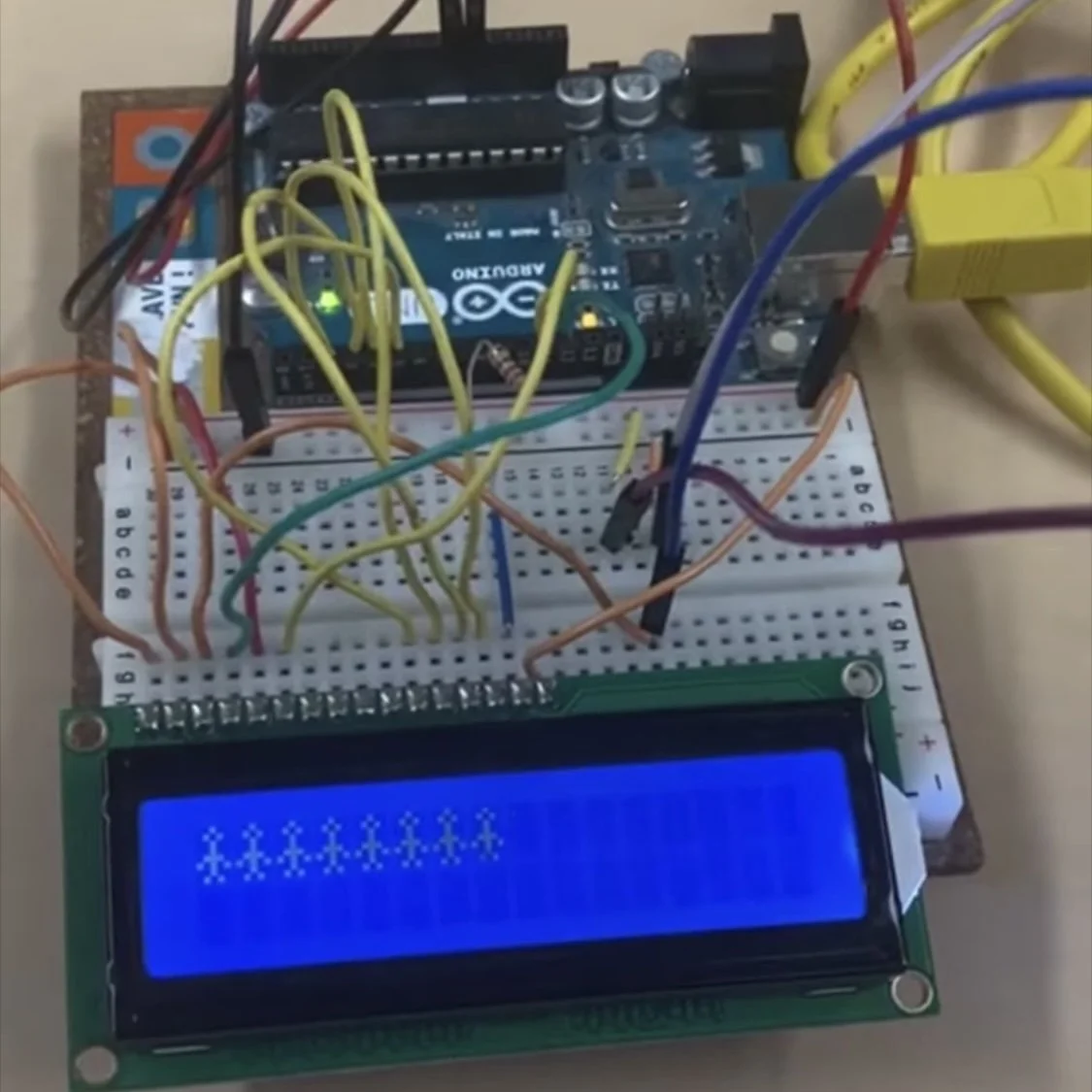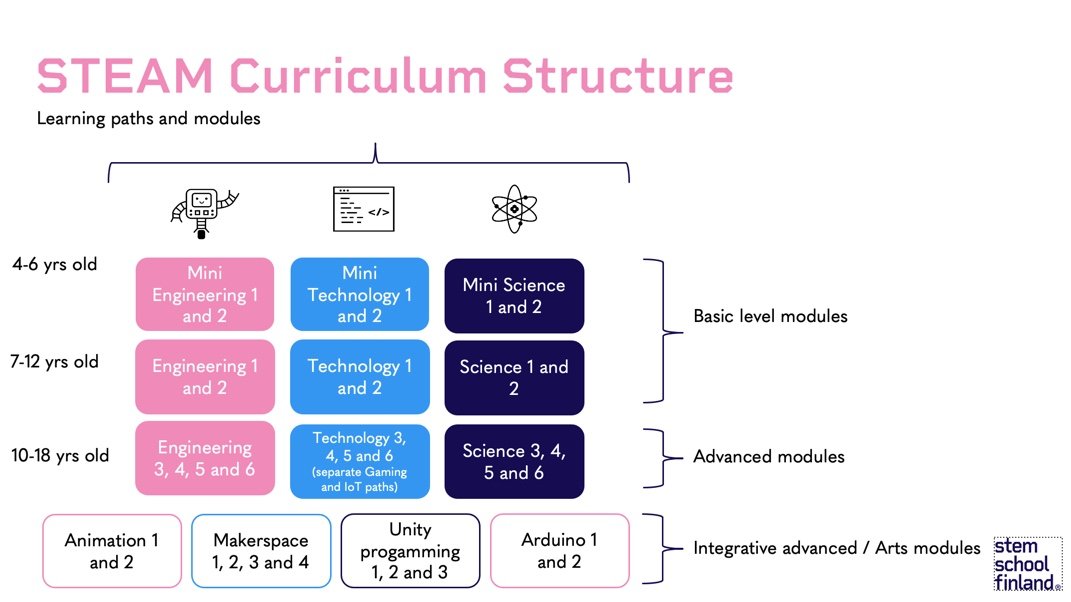Learning STEAM
What?
-

Engineering
In Engineering students learn to design, build and program moving complex mechanical structures, machines and systems.
-

Technology
In Technology students learn computational thinking and programming skills by diving into the world of functions, logic and structures.
-

Science
In Science students focus on scientific and analytical exploration and experimenting in chemistry, biology, physics and geography.
Where?
STEM School Finland is the largest private science and technology educator of children in Finland. STEM School Finland operates in Finland under the name Tiedekoulu (www.tiedekoulu.fi). STEM School Finland has over 40 locations throughout Finland. Our teacher team consists of over 40 teachers, scientists and engineers working with the Science, Engineering, Technology and Art courses, lesson plans and educational contents.
How?
-

Experimenting
The focus on each lesson is on hands-on experimenting and working. Students are encouraged to find solutions themselves through trial and error.
This whole learning process promotes creativity problem-solving skills, analytical thinking and persistence. Children perceive hands-on activities often as playing due to its joyfulness. This engages deeper learning.
-

Learning
We at STEM School Finland have developed our own theme-based curriculum in the field of natural sciences, engineering, arts and technology.
Children can start learning STEAM at the age of 3. We have advanced groups and lesson plans available up to 16-18 year olds. During these STEAM learning paths students gain very profound knowledge and skills in these topics.
-

Creating
STEM School Finland teachers and teacher training focuses on learner-centered, inclusive approach that supports and challenges each student.
Students pursue their passions and interests through individual work and reflect on their learning. We have a strong focus in promoting creativity, independent problem-solving, critical thinking and analytical thinking skills.

